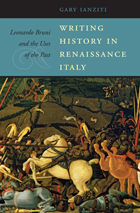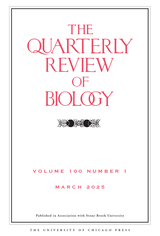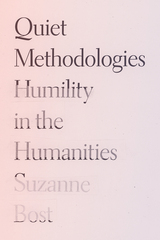
Leonardo Bruni (1370-1444), the leading civic humanist of the Italian Renaissance, served as apostolic secretary to four popes (1405-1414) and chancellor of Florence (1427-1444). He was famous in his day as a translator, orator, and historian, and was the best-selling author of the fifteenth century. Bruni's History of the Florentine People in twelve books is generally considered the first modern work of history, and was widely imitated by humanist historians for two centuries after its official publication by the Florentine Signoria in 1442.
This third volume concludes the edition, the first to make the work available in English translation. It includes Bruni's Memoirs, an autobiographical account of the events of his lifetime, and cumulative indexes to the complete History.



The cycle of disciplines now known as the humanities emerged in their modern form during the Italian Renaissance as the result of an educational movement begun by humanist teachers, writers, and scholars of the early Quattrocento. The movement argued for the usefulness of classical literature as an instrument for training young men and women, not only in the arts of language and eloquence, but also in civic virtue and practical wisdom. This volume contains four of the most important theoretical statements that emerged from the early humanists’ efforts to reform medieval education.
The four texts are Pier Paolo Vergerio, “The Character and Studies Befitting a Free-Born Youth”; Leonardo Bruni, “The Study of Literature”; Aeneas Silvius Piccolomini (Pope Pius II), “The Education of Boys”; and Battista Guarino, “A Program of Teaching and Learning.” The Vergerio and Guarino texts appear in English for the first time.

Leonardo Bruni (1370–1444) is widely recognized as the most important humanist historian of the early Renaissance. But why this recognition came about—and what it has meant for the field of historiography—has long been a matter of confusion and controversy. Writing History in Renaissance Italy offers a fresh approach to the subject by undertaking a systematic, work-by-work investigation that encompasses for the first time the full range of Bruni’s output in history and biography.
The study is the first to assess in detail the impact of the classical Greek historians on the development of humanist methods of historical writing. It highlights in particular the importance of Thucydides and Polybius—authors Bruni was among the first in the West to read, and whose analytical approach to politics led him in new directions. Yet the revolution in history that unfolds across the four decades covered in this study is no mere revival of classical models: Ianziti constantly monitors Bruni’s position within the shifting hierarchies of power in Florence, drawing connections between his various historical works and the political uses they were meant to serve.
The result is a clearer picture of what Bruni hoped to achieve, and a more precise analysis of the dynamics driving his new approach to the past. Bruni himself emerges as a protagonist of the first order, a figure whose location at the center of power was a decisive factor shaping his innovations in historical writing.
READERS
Browse our collection.
PUBLISHERS
See BiblioVault's publisher services.
STUDENT SERVICES
Files for college accessibility offices.
UChicago Accessibility Resources
home | accessibility | search | about | contact us
BiblioVault ® 2001 - 2025
The University of Chicago Press









